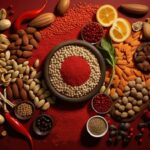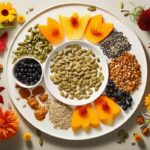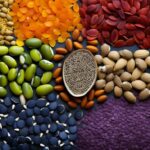Nutritional Value of Chia Seeds
Boost Your Vegan Diet With Seed-Packed Nourishment


Looking to improve your vegan lifestyle? Look no further! We have the inside scoop on boosting your plant-based diet with the power of seeds.
These tiny powerhouses are packed with essential nutrients, plant-based protein, omega-3 fatty acids, dietary fiber, and antioxidants. They not only nourish your body but also support brain health and boost your immune system.
So, join us on this seed-packed journey and take your vegan diet to the next level!
Key Takeaways
- Incorporating seeds into a vegan diet provides essential nutrients like iron and calcium for optimal health.
- Seeds like hemp, chia, and quinoa are complete proteins, containing all essential amino acids, and can help meet daily protein requirements.
- Flaxseeds, chia seeds, and hemp seeds are excellent plant-based sources of omega-3 fatty acids, which support brain health and reduce inflammation.
- Seeds like chia, flax, and pumpkin are rich sources of dietary fiber, which promote digestive health, weight management, and reduce the risk of chronic diseases.
Essential Nutrients for a Vegan Diet
We frequently find that essential nutrients are crucial for our vegan diet. As vegans, we need to ensure that we’re getting all the necessary nutrients that our bodies require from plant-based sources.

Two important nutrients to focus on are iron and calcium. Iron is important for the production of red blood cells and can be found in plant-based sources such as lentils, spinach, and tofu.
Calcium, on the other hand, is necessary for strong bones and can be obtained from vegan options like fortified plant milk, kale, and almonds.
It’s important to incorporate these plant-based iron sources and vegan calcium options into our diet to maintain optimal health and prevent any nutrient deficiencies.
Powerhouse of Plant-Based Protein
Plant-based seeds offer a rich source of protein for our vegan diet. Incorporating protein-packed seeds into our meals can have numerous benefits, helping us meet our daily protein requirements while enjoying a varied and delicious plant-based diet.

Here are three key benefits of incorporating seeds into a vegan diet:
-
Complete protein: Seeds such as hemp, chia, and quinoa are considered complete proteins, meaning they contain all the essential amino acids our bodies need. This makes them an excellent choice for vegans looking to ensure they’re getting all the necessary protein.
-
Nutrient-dense: Seeds are packed with essential nutrients like iron, zinc, and magnesium, which are often lacking in a vegan diet. By adding seeds to our meals, we can boost our nutrient intake and support overall health.
-
Versatile and delicious: From sprinkling chia seeds on our breakfast bowls to adding hemp seeds to our smoothies, incorporating seeds into our meals is an easy way to add texture, flavor, and nutritional value.

Omega-3 Fatty Acids for Brain Health
Incorporating seeds into our vegan diet not only provides a rich source of protein but also offers an essential nutrient for brain health: omega-3 fatty acids. Omega-3 fatty acids are polyunsaturated fats that play a crucial role in brain function and overall well-being. While fish is commonly associated with omega-3s, there are plenty of plant-based alternatives that can provide these beneficial fats. Flaxseeds, chia seeds, and hemp seeds are all excellent sources of omega-3 fatty acids, making them essential additions to a vegan diet. These seeds not only provide the omega-3s our brains need, but they also offer additional benefits such as reducing inflammation, improving heart health, and supporting healthy skin. By incorporating these seeds into our meals, we can nourish our bodies and support optimal brain function.
| Plant-Based Alternatives for Omega-3 Fatty Acids |
|---|
| Flaxseeds |
| Chia Seeds |
| Hemp Seeds |
Rich Source of Dietary Fiber
To continue our exploration of seed-packed nourishment, let’s now delve into the rich source of dietary fiber that these seeds offer. Including high fiber recipes in your diet can provide numerous benefits for overall health and well-being. Here are three reasons why a high fiber diet is essential:
-
Promotes Digestive Health: Dietary fiber adds bulk to your stool, preventing constipation and promoting regular bowel movements. It also helps maintain a healthy gut microbiome by acting as a prebiotic, nourishing beneficial bacteria.
-
Supports Weight Management: High fiber foods are generally more filling, leading to reduced calorie intake and increased satiety. This can be especially helpful for those looking to manage their weight or control cravings.

-
Reduces the Risk of Chronic Diseases: A high fiber diet has been linked to a reduced risk of developing conditions such as heart disease, type 2 diabetes, and certain types of cancer.
Incorporating seeds into your meals is an excellent way to boost your fiber intake and reap these benefits.
Antioxidants to Boost Immune System
Including seeds in our diet provides a rich source of antioxidants to boost our immune system. Antioxidants are compounds that help protect our cells from damage caused by free radicals, which can lead to chronic diseases and weaken our immune system. Seeds such as chia, flax, and hemp seeds are particularly high in antioxidants, including vitamin E, selenium, and phenolic compounds.
These antioxidants help reduce inflammation, support gut health, and strengthen our immune system. To incorporate seeds into our diet, we can try immune boosting smoothie recipes that include a variety of seeds. For example, a smoothie with spinach, berries, almond milk, and a tablespoon of chia seeds can provide a powerful antioxidant boost to support our immune system.

Frequently Asked Questions
Can I Get All the Essential Nutrients for a Vegan Diet From Seeds Alone?
Yes, we can get essential nutrients for a vegan diet from seeds alone. Seeds are plant-based alternatives that provide protein, healthy fats, vitamins, and minerals. Incorporating seeds into a vegan diet can boost health benefits.
Are There Any Seeds That Are Particularly High in Protein?
Some seeds, like hemp and chia seeds, are particularly high in protein, making them great options for muscle building. Additionally, seeds like flaxseed and pumpkin seeds can aid in weight loss due to their fiber content.
How Can I Incorporate Omega-3 Fatty Acids Into My Vegan Diet if I Don’t Consume Fish or Fish Oil?
We can incorporate omega-3 fatty acids into our vegan diet by consuming plant-based sources such as chia seeds, flaxseeds, and hemp seeds. These vegan sources provide essential nutrients without the need for fish or fish oil.
Are There Any Seeds That Are Particularly High in Dietary Fiber?
Seeds like chia and flax are high in dietary fiber. We can boost our vegan diet by sprinkling these seeds on salads, blending them into smoothies, or using them as a topping for oatmeal.

How Do Antioxidants in Seeds Help to Boost the Immune System?
Antioxidants in seeds help boost the immune system by neutralizing harmful free radicals and reducing inflammation. Incorporating these antioxidants into a vegan diet can provide added health benefits. To do so, we can easily incorporate seeds into everyday meals.
Conclusion
Overall, incorporating seeds into a vegan diet is a smart choice for optimal nutrition.
Did you know that just one tablespoon of chia seeds contains more omega-3 fatty acids than a serving of salmon?
This powerful statistic highlights the immense health benefits seeds offer, such as improved brain function and a strengthened immune system.

So, why not add a sprinkle of seeds to your meals and reap the rewards of a well-rounded vegan diet?
Hi, I’m Sarah. I write for Turtle Tree Seeds, a news blog that loves food – all kinds of food. But especially bacon, chocolate, and veggies. We’re on a mission to show the world that you can enjoy all of those things, even kale and brussels sprouts. Because we believe that when it comes to food, there’s no such thing as guilty pleasures. Just pleasures.
I’m also a huge fan of puns (obviously).
Nutritional Value of Chia Seeds
Comparing Nutritional Value: Flax Seeds Vs Super Seeds
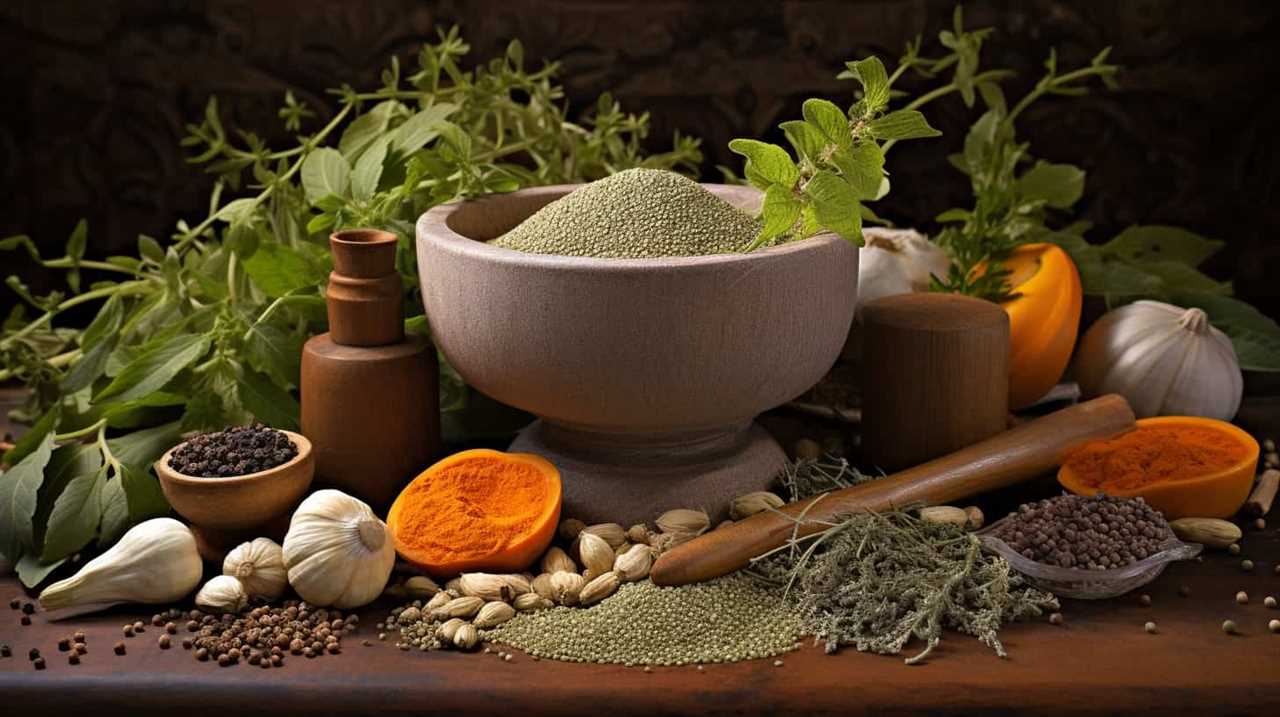
We are all aware of the health benefits of seeds, but which ones are the most beneficial? This article will compare the nutritional advantages of flax seeds with super seeds, helping you make informed choices for your wellbeing.
By examining their protein content, omega-3 fatty acids, fiber content, antioxidants, and micronutrients, we’ll provide evidence-based insights that can empower you to prioritize your health.
Let’s dive into the facts and discover the true power of these tiny yet mighty seeds.
Key Takeaways
- Chia seeds have a higher protein content compared to flax seeds.
- Chia seeds are a superior choice for meeting daily omega-3 fatty acid needs.
- Chia seeds provide both soluble and insoluble fiber, helping regulate blood sugar levels and preventing constipation.
- Chia seeds are a rich source of antioxidants, reducing the risk of chronic diseases like heart disease and cancer.
Protein Content in Chia Seeds
Chia seeds contain a high amount of protein, making them a nutritious addition to any diet. When comparing the protein content in different seeds, chia seeds stand out as an excellent choice. With approximately 5 grams of protein per ounce, they offer a significant protein boost.

In fact, chia seeds have a higher protein content compared to flax seeds, which contain around 3 grams of protein per ounce. This makes chia seeds an attractive option for those looking to increase their protein intake while enjoying the nutritional benefits of these tiny super seeds.
Whether you’re a vegetarian, vegan, or simply looking for plant-based protein sources, chia seeds can be a valuable addition to your diet.
Omega-3 Fatty Acids in Chia Seeds
When it comes to the omega-3 fatty acid content, chia seeds are a superior choice compared to flax seeds. Chia seeds pack a stronger punch when it comes to omega-3 fatty acids, containing approximately 5 grams per 1-ounce serving. On the other hand, flax seeds contain about 1.8 grams per 1-ounce serving. Omega-3 fatty acids are essential fats that play a crucial role in heart health, brain function, and reducing inflammation in the body. Incorporating chia seeds into your diet can help you meet your daily omega-3 fatty acid needs more effectively. Therefore, chia seeds are a great addition to a balanced and healthy eating plan.
Fiber Content in Chia Seeds
To continue our comparison of nutritional value between flax seeds and super seeds, let’s now examine the fiber content found in chia seeds. Chia seeds are known for their high fiber content, which contributes to their many potential health benefits. Here are four key points to consider:
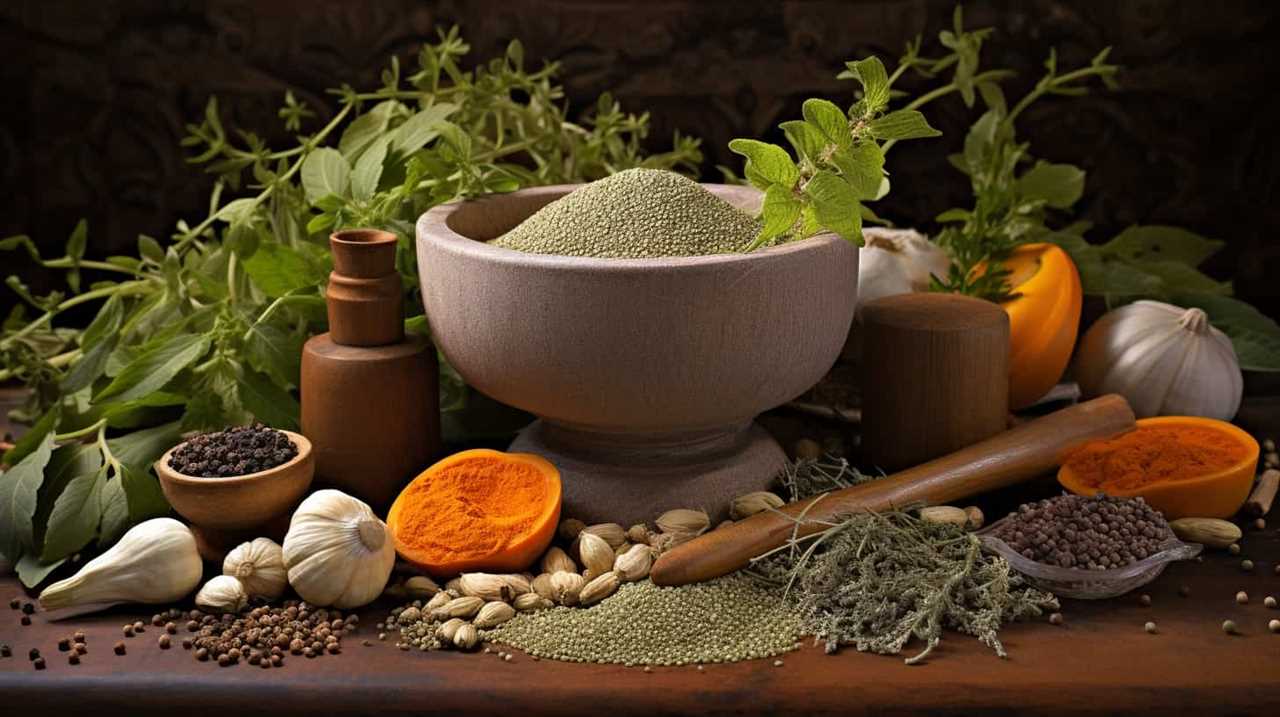
-
High Fiber Content: Chia seeds are an excellent source of dietary fiber, with around 10 grams of fiber per ounce. This high fiber content helps promote healthy digestion and can aid in weight management.
-
Soluble and Insoluble Fiber: Chia seeds contain both soluble and insoluble fiber, providing a balanced intake of both types. Soluble fiber helps regulate blood sugar levels and lowers cholesterol, while insoluble fiber adds bulk to the stool, preventing constipation.
-
Phytochemicals: Chia seeds are rich in phytochemicals, such as lignans and phenolic acids. These compounds have antioxidant and anti-inflammatory properties, which may help reduce the risk of chronic diseases like heart disease and cancer.
-
Feeling Full and Satisfied: The fiber in chia seeds absorbs liquid and expands in the stomach, creating a feeling of fullness and satisfaction. This can be beneficial for those trying to manage their appetite and control calorie intake.
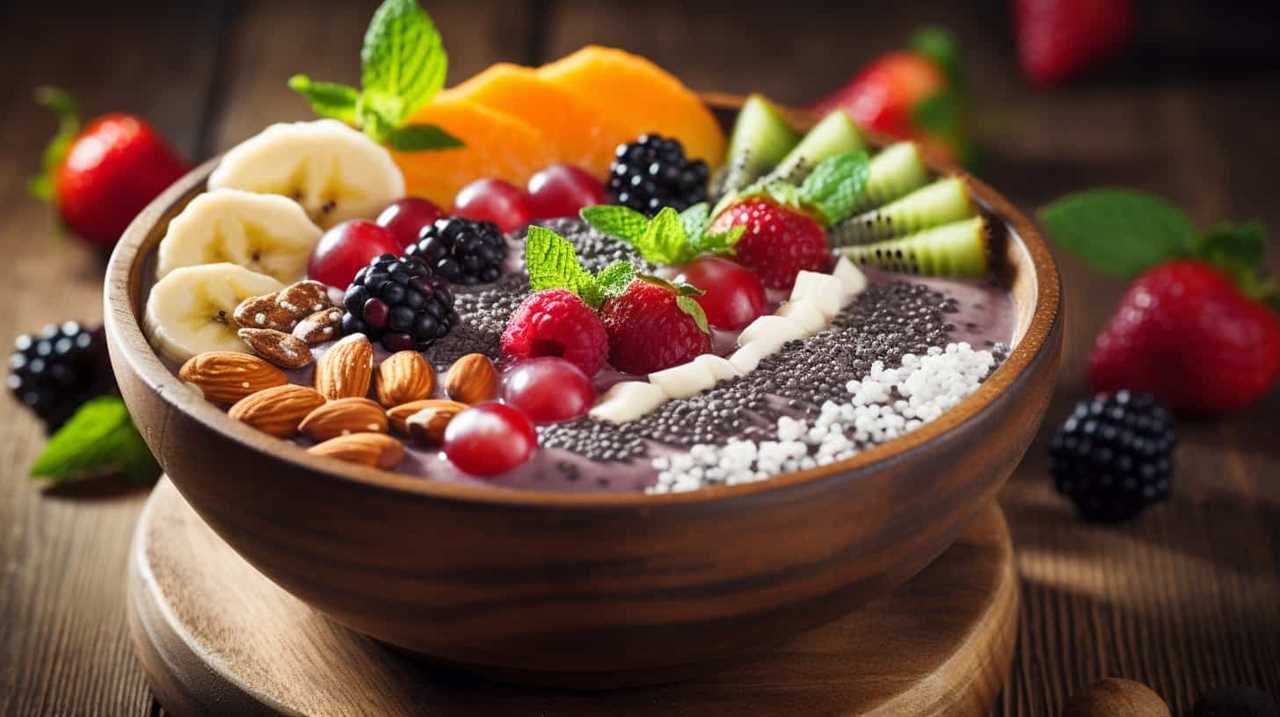
Incorporating chia seeds into your diet can be a simple and nutritious way to increase your fiber intake and enjoy the potential health benefits they offer.
Antioxidants in Chia Seeds
Incorporating antioxidants into our diet is important for maintaining good health and overall well-being. Chia seeds, in addition to being a great source of fiber, also contain antioxidants that offer numerous health benefits.
Antioxidants help protect our body from oxidative stress caused by harmful molecules called free radicals. Chia seeds are rich in antioxidants such as flavonoids, phenolic acids, and vitamin E, which help neutralize these free radicals and reduce the risk of chronic diseases like heart disease and cancer.
To reap the antioxidant benefits of chia seeds, they can be easily incorporated into various recipes. They can be added to smoothies, yogurt, oatmeal, or used as an egg substitute in baking.
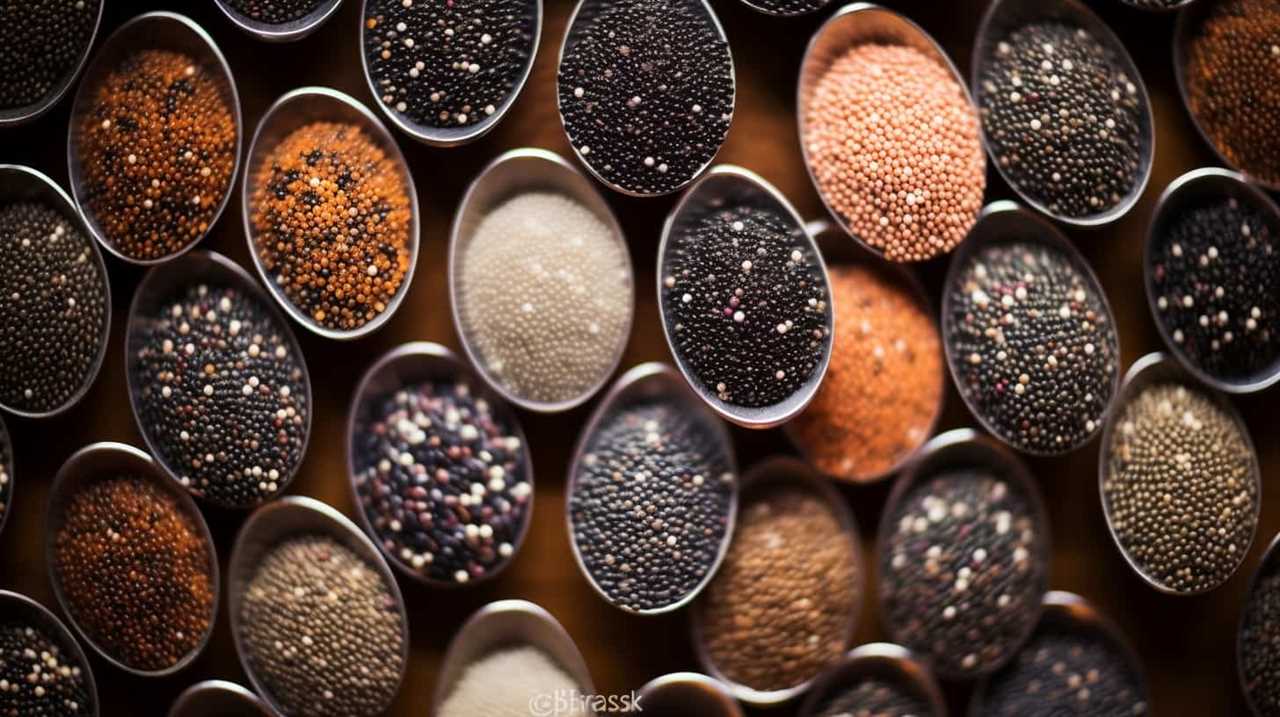
Including chia seeds in our diet is a delicious and nutritious way to boost our antioxidant intake.
Micronutrients in Chia Seeds
Chia seeds provide essential micronutrients that support our overall health and well-being. These tiny seeds are packed with important vitamins and minerals that can benefit our bodies in various ways. Here are four key micronutrients found in chia seeds and their potential health benefits:
-
Omega-3 fatty acids: Chia seeds are an excellent plant-based source of omega-3 fatty acids, which are essential for heart health, brain function, and reducing inflammation in the body.
-
Fiber: Chia seeds are rich in dietary fiber, which can aid in digestion, promote satiety, and help regulate blood sugar levels.
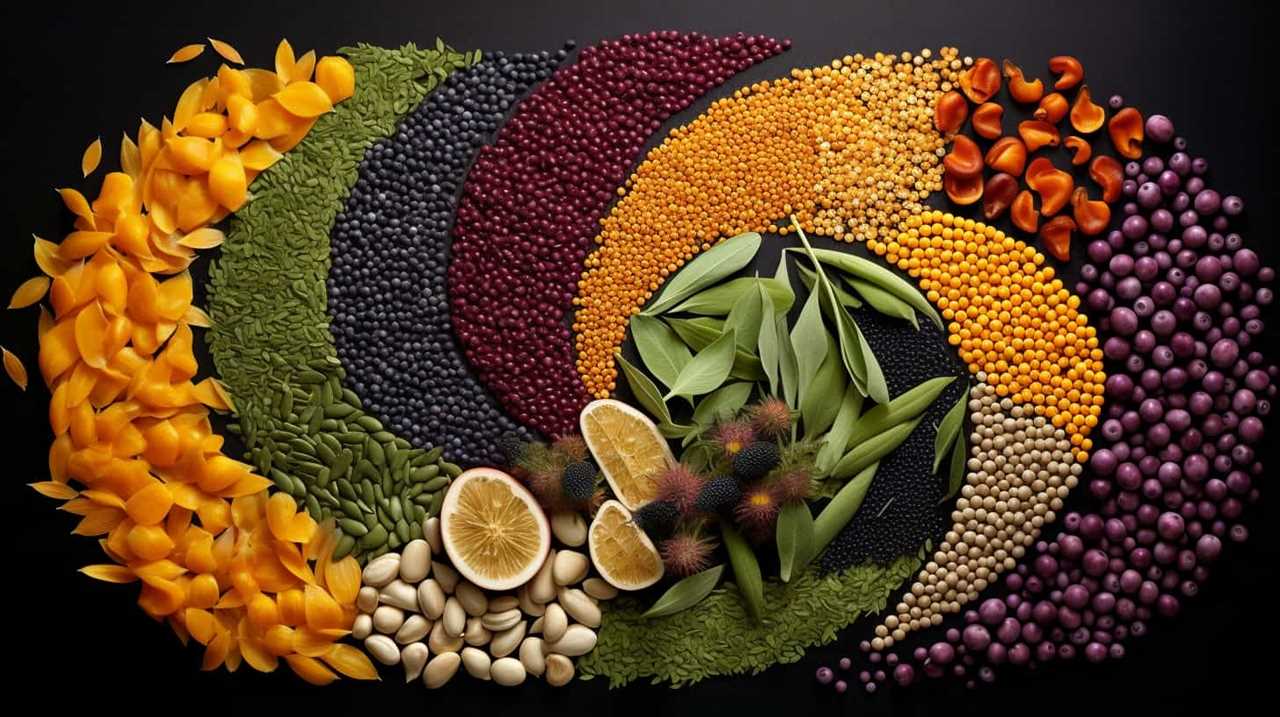
-
Calcium: Chia seeds contain a significant amount of calcium, which is crucial for maintaining strong bones and teeth, as well as supporting muscle function.
-
Antioxidants: Chia seeds are also a good source of antioxidants, which help protect our cells from damage caused by free radicals and may contribute to a lower risk of chronic diseases.
Frequently Asked Questions
Are There Any Potential Side Effects or Risks Associated With Consuming Chia Seeds?
We should be aware of potential risks and take precautions when consuming chia seeds. It’s important to note any side effects and consult a healthcare professional if needed for personalized advice.
How Do Chia Seeds Compare to Other Super Seeds in Terms of Calorie Content?
When comparing chia seeds to flax seeds in terms of calorie content, chia seeds typically have slightly more calories. However, chia seeds also offer a wide range of nutritional benefits, including high levels of fiber, protein, and omega-3 fatty acids.
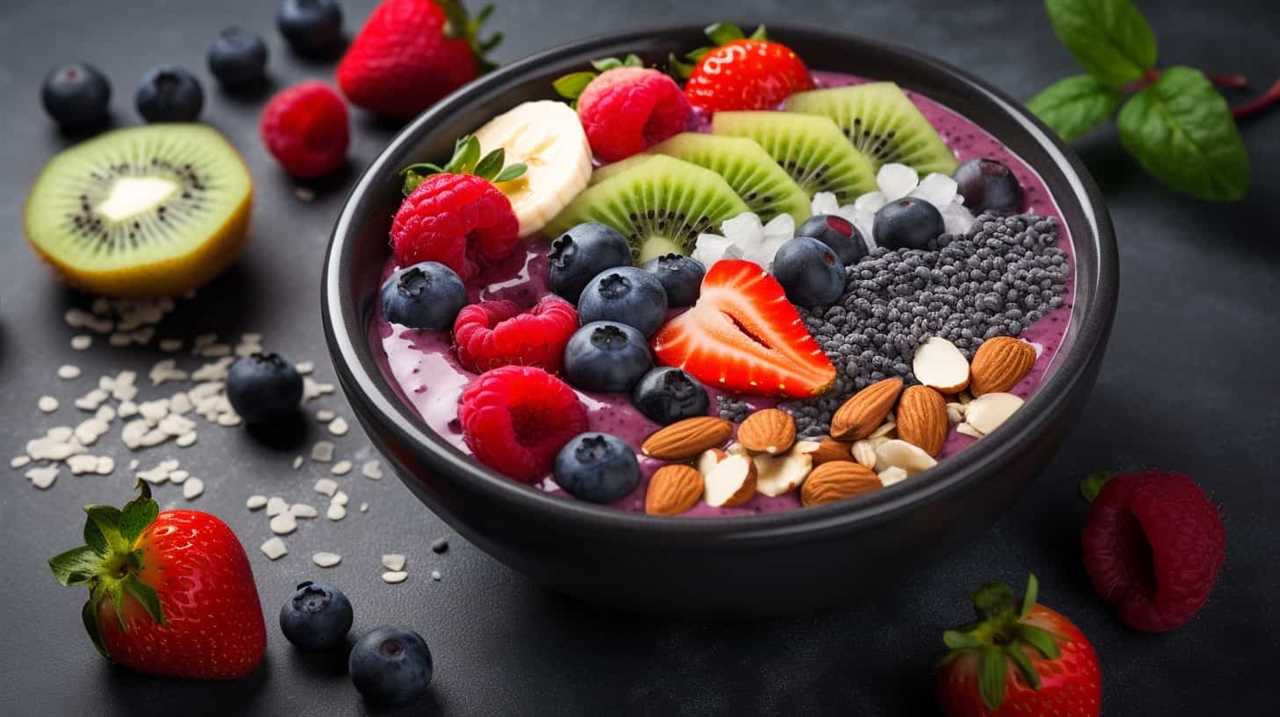
Can Chia Seeds Help With Weight Loss or Weight Management?
Chia seeds can be beneficial for weight loss or management as they can be used as a meal replacement and are a good source of omega-3 fatty acids. Incorporating them into a balanced diet may support overall health and wellness.
Are There Any Specific Recommendations for the Daily Intake of Chia Seeds?
There aren’t any specific recommendations for the daily intake of chia seeds. However, it’s important to note that chia seeds are a nutritious addition to a balanced diet and can provide various health benefits.
Can Chia Seeds Be Beneficial for Individuals With Certain Medical Conditions, Such as Diabetes or Heart Disease?
Chia seeds can help with diabetes management and benefit heart health. They are rich in fiber, omega-3 fatty acids, and antioxidants, which can improve blood sugar control and reduce the risk of heart disease.
Conclusion
In conclusion, when comparing the nutritional value of flax seeds and super seeds, it’s clear that chia seeds emerge as a superior choice.
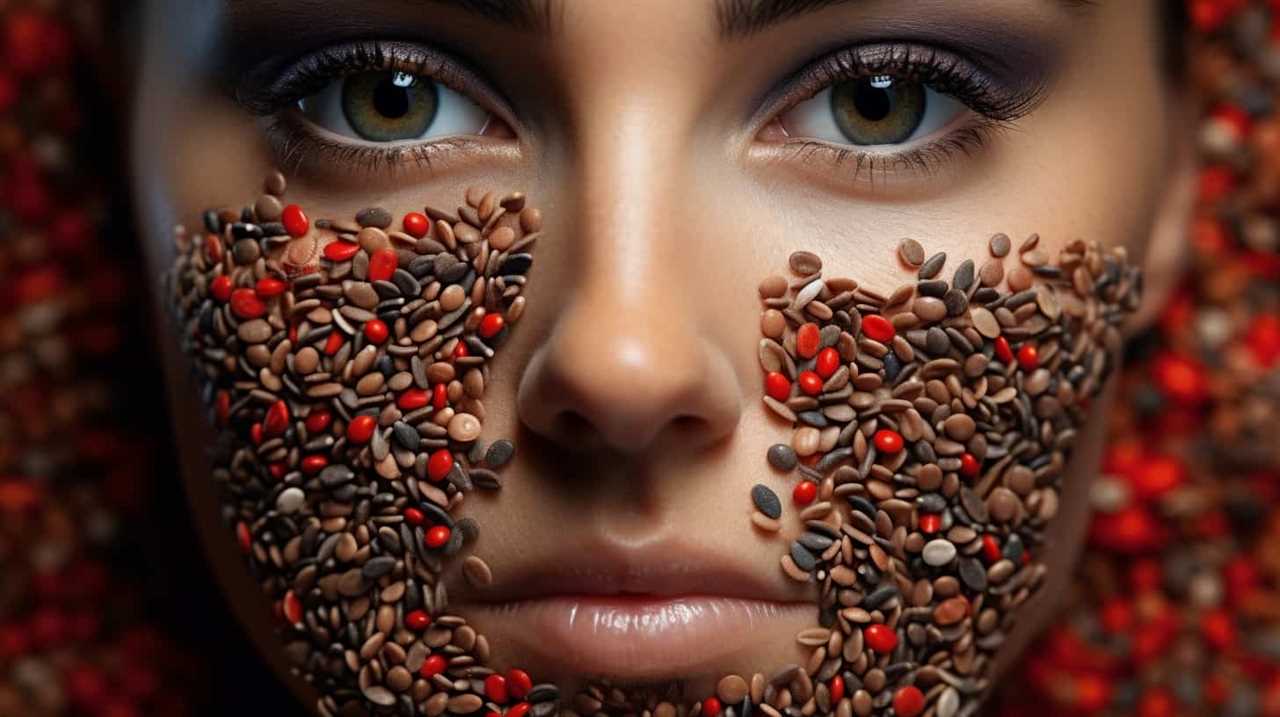
With higher protein content, omega-3 fatty acids, fiber, antioxidants, and essential micronutrients, chia seeds offer a powerful nutritional punch.
As the saying goes, ‘good things come in small packages,’ and chia seeds truly embody this sentiment.
Incorporating them into your diet can provide numerous health benefits and support overall well-being.
Hi, I’m Sarah. I write for Turtle Tree Seeds, a news blog that loves food – all kinds of food. But especially bacon, chocolate, and veggies. We’re on a mission to show the world that you can enjoy all of those things, even kale and brussels sprouts. Because we believe that when it comes to food, there’s no such thing as guilty pleasures. Just pleasures.
I’m also a huge fan of puns (obviously).
Nutritional Value of Chia Seeds
Boosting Your Vegan Diet With Nutritious Chia Seeds
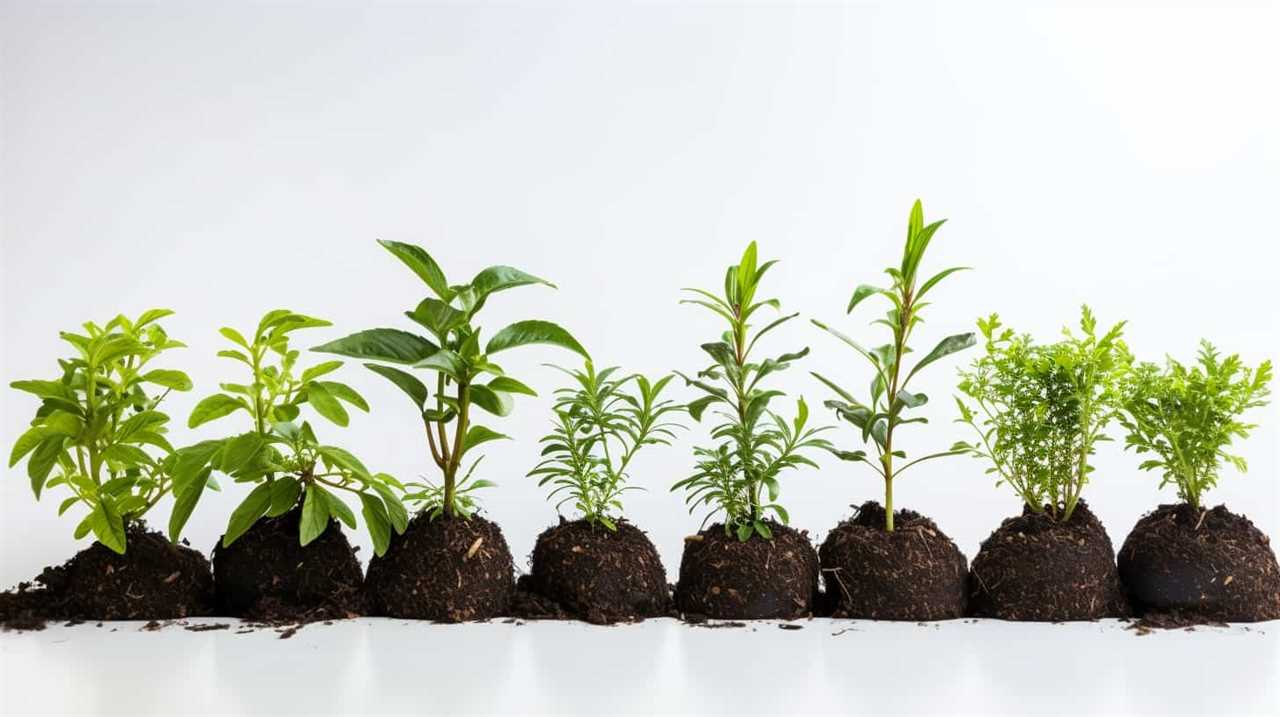
Looking to enhance your vegan diet with a plethora of nutrients? Look no further, as chia seeds have got you covered!
Packed with essential vitamins, plant-based protein, omega-3 fatty acids, and fiber, chia seeds are a must-have addition to your plant-based meals.
By incorporating these tiny seeds into your diet, you can boost your overall health and well-being while enjoying a delicious and nutritious vegan lifestyle.
Join us as we explore the amazing benefits of chia seeds and how they can serve your quest for optimal nutrition.
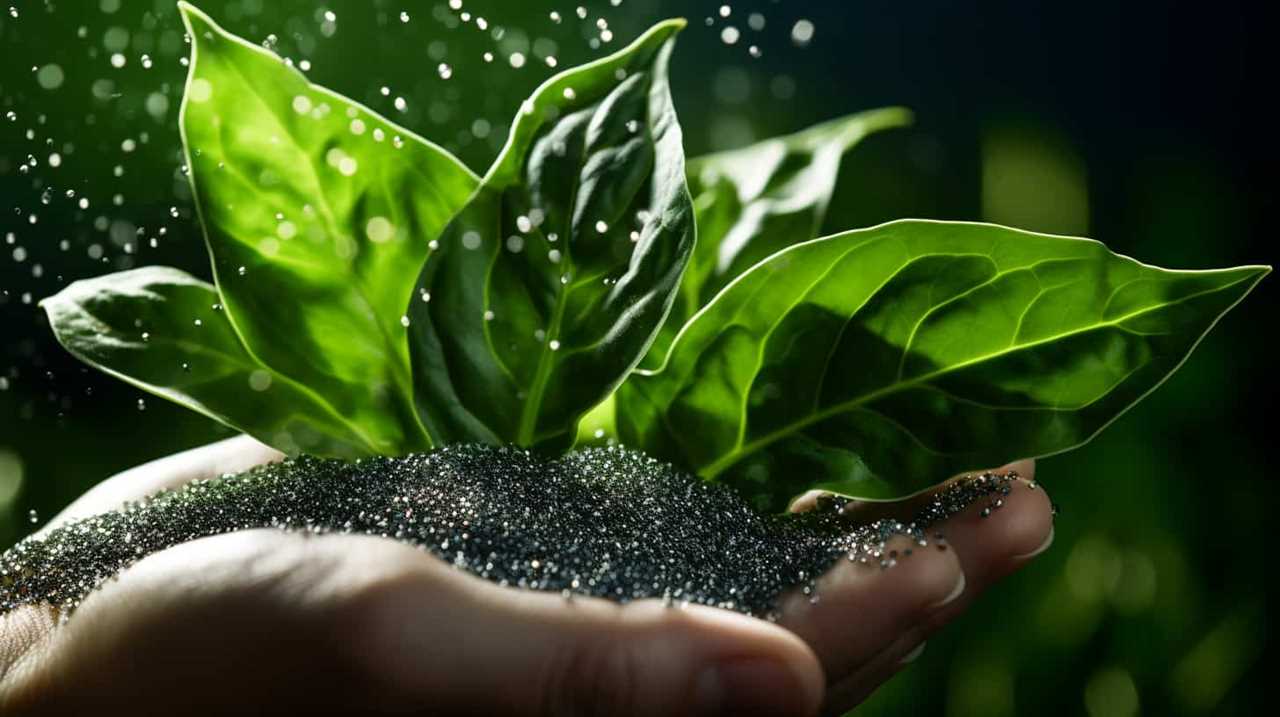
Key Takeaways
- Chia seeds are packed with essential nutrients such as omega-3 fatty acids, fiber, protein, and various vitamins and minerals.
- Chia seeds are rich in essential vitamins such as B1, B3, B9, and E, which support energy metabolism, brain function, cell growth, and act as powerful antioxidants.
- Chia seeds serve as a valuable plant-based protein source, containing all nine essential amino acids and providing around 4 grams of protein in just two tablespoons.
- Chia seeds offer an abundance of omega-3 fatty acids, which reduce the risk of heart disease, support brain health, have anti-inflammatory properties, and can help reduce joint pain and stiffness.
Chia Seeds Nutrients for Vegan Diet
Chia seeds provide essential nutrients for our vegan diet. These tiny seeds are packed with omega-3 fatty acids, fiber, protein, and various vitamins and minerals. Incorporating chia seeds into meals is a great way to boost the nutritional value of your vegan dishes.
There are numerous chia seed recipes that you can try to incorporate these nutritious seeds into your meals. You can sprinkle them on top of your morning smoothie or oatmeal for a crunchy texture. Chia seeds can also be used as an egg substitute in baking, by mixing them with water to create a gel-like consistency.
Another way to incorporate chia seeds is by making chia seed pudding. Simply mix chia seeds with your favorite plant-based milk and let it sit in the refrigerator overnight. In the morning, you’ll have a delicious and nutritious pudding that can be topped with fruits or nuts.
Essential Vitamins in Chia Seeds
As we delve deeper into the nutritional benefits of chia seeds, it’s important to highlight the essential vitamins that these tiny powerhouses provide for our vegan diet. Chia seeds are packed with a variety of vitamins that are crucial for our overall health and well-being. Here are four essential vitamins found in chia seeds:
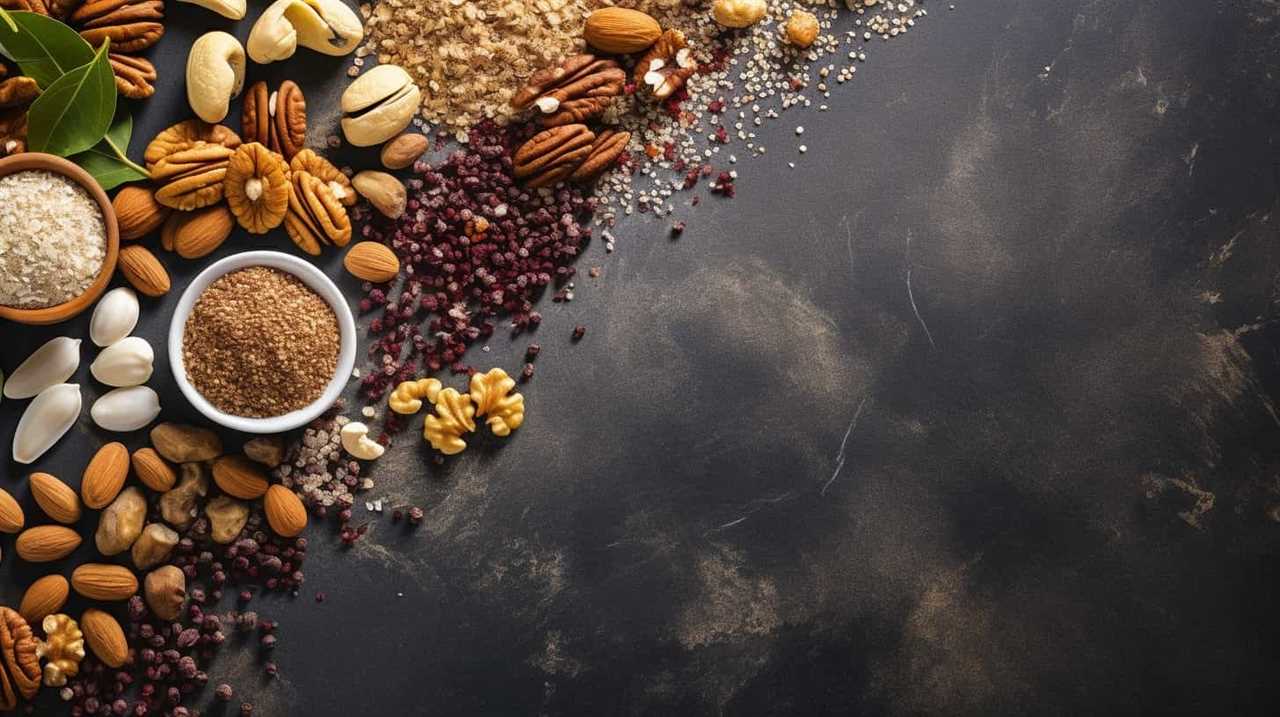
-
Vitamin B1 (Thiamine): Chia seeds are an excellent source of vitamin B1, which is essential for energy metabolism and brain function.
-
Vitamin B3 (Niacin): Chia seeds are also rich in vitamin B3, which plays a key role in converting food into energy and supporting the nervous system.
-
Vitamin B9 (Folate): Chia seeds are a great source of folate, which is important for cell growth and development, as well as for the production of red blood cells.
-
Vitamin E: Chia seeds are high in vitamin E, a powerful antioxidant that helps protect our cells from damage caused by free radicals.

Incorporating chia seeds into our daily meals is a simple and effective way to boost our intake of these essential vitamins and reap the many health benefits they offer.
Chia Seeds as a Plant-Based Protein Source
One key advantage of incorporating chia seeds into our vegan diet is their role as a valuable plant-based protein source.
Chia seeds are an excellent option for muscle building and can serve as a viable alternative to animal protein. Despite their small size, chia seeds pack a powerful punch when it comes to protein content. They contain all nine essential amino acids, making them a complete protein source.
Just two tablespoons of chia seeds provide around 4 grams of protein, which is significant for a plant-based food. Additionally, chia seeds are rich in fiber, omega-3 fatty acids, and various minerals, further enhancing their nutritional value.

Omega-3 Fatty Acids in Chia Seeds
To further enhance the nutritional benefits of incorporating chia seeds into our vegan diet, we can explore the abundance of omega-3 fatty acids they offer. Omega-3 fatty acids are essential for our overall health and well-being. Here are some of the benefits of omega-3 fatty acids in chia seeds:
- Heart health: Omega-3s have been shown to reduce the risk of heart disease by lowering blood pressure and triglyceride levels.
- Brain function: These fatty acids support brain health and cognitive function, improving memory and concentration.
- Inflammation reduction: Omega-3s have anti-inflammatory properties, helping to reduce inflammation in the body and alleviate symptoms of chronic diseases.
- Joint health: Chia seeds’ omega-3 content can help reduce joint pain and stiffness, improving mobility.
Incorporating chia seeds into a balanced vegan diet is a simple and effective way to reap the benefits of omega-3 fatty acids.
Fiber Content of Chia Seeds
The fiber content of chia seeds provides numerous health benefits for our vegan diet. Chia seeds are an excellent source of dietary fiber, which is essential for maintaining a healthy digestive system. Fiber helps to regulate bowel movements, prevent constipation, and promote overall gut health. Additionally, chia seeds can aid in weight loss due to their high fiber content. When consumed, chia seeds absorb liquid and expand in the stomach, creating a feeling of fullness and reducing appetite. This can help prevent overeating and contribute to weight management. To further understand the fiber content of chia seeds, refer to the table below:
| Nutrient | Amount per 1 ounce (28g) |
|---|---|
| Fiber | 10.6 grams |
| Protein | 4.4 grams |
| Fat | 9 grams |
Incorporating chia seeds into our vegan diet can provide digestive benefits and support weight loss goals.
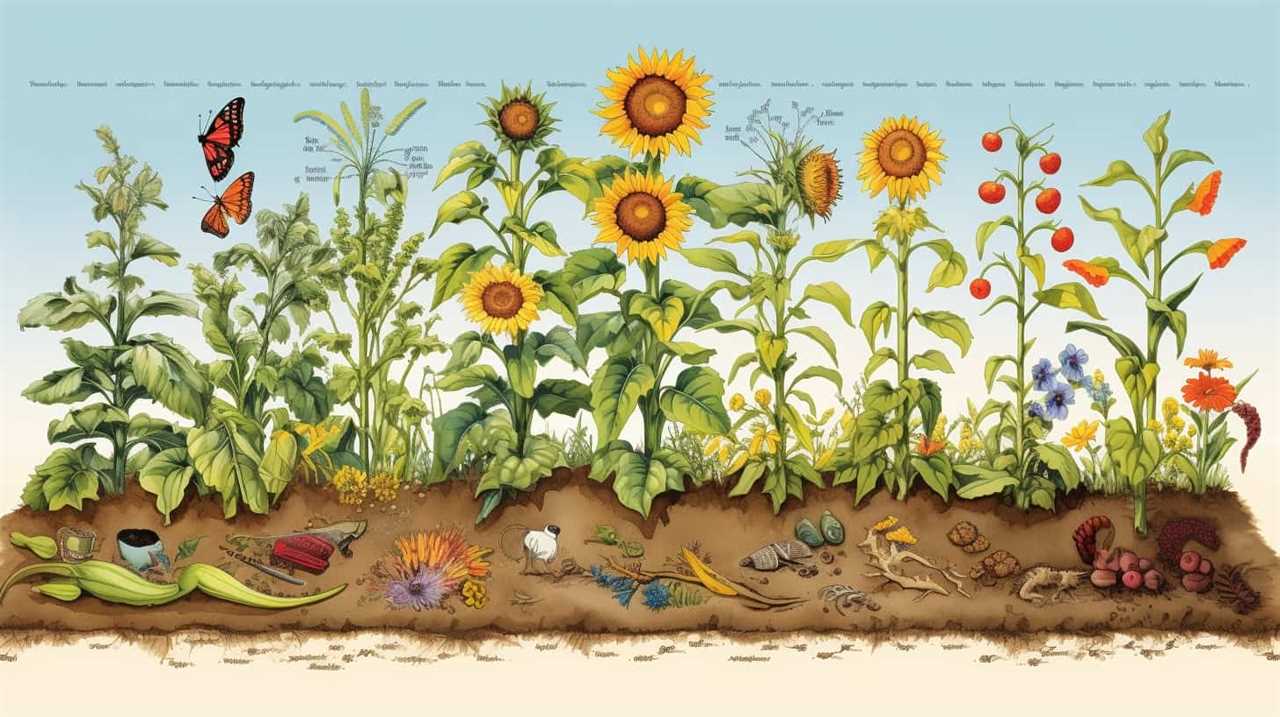
Frequently Asked Questions
Can Chia Seeds Be Safely Consumed by People With Nut Allergies?
Chia seeds can be a safe alternative for people with nut allergies in vegan recipes. They offer similar nutritional benefits and can be used in various dishes. It’s important to consult a healthcare professional for personalized advice on chia seed allergy alternatives.
Are Chia Seeds a Good Source of Calcium for Vegans?
Chia seeds are indeed a good source of calcium for vegans. In fact, just one ounce of chia seeds provides 18% of the daily recommended intake of calcium. This makes them an excellent addition to a vegan diet, promoting bone health.
How Can Chia Seeds Be Incorporated Into a Vegan Diet Plan?
Incorporating chia seeds into a vegan diet plan can be done in many creative ways. They can be used as a topping for smoothie bowls, added to overnight oats, or even used as an egg substitute in baking recipes.
Can Chia Seeds Help With Weight Loss in a Vegan Diet?
Yes, chia seeds can help with weight loss in a vegan diet. They are a great source of protein and can act as a natural appetite suppressant, aiding in weight management.
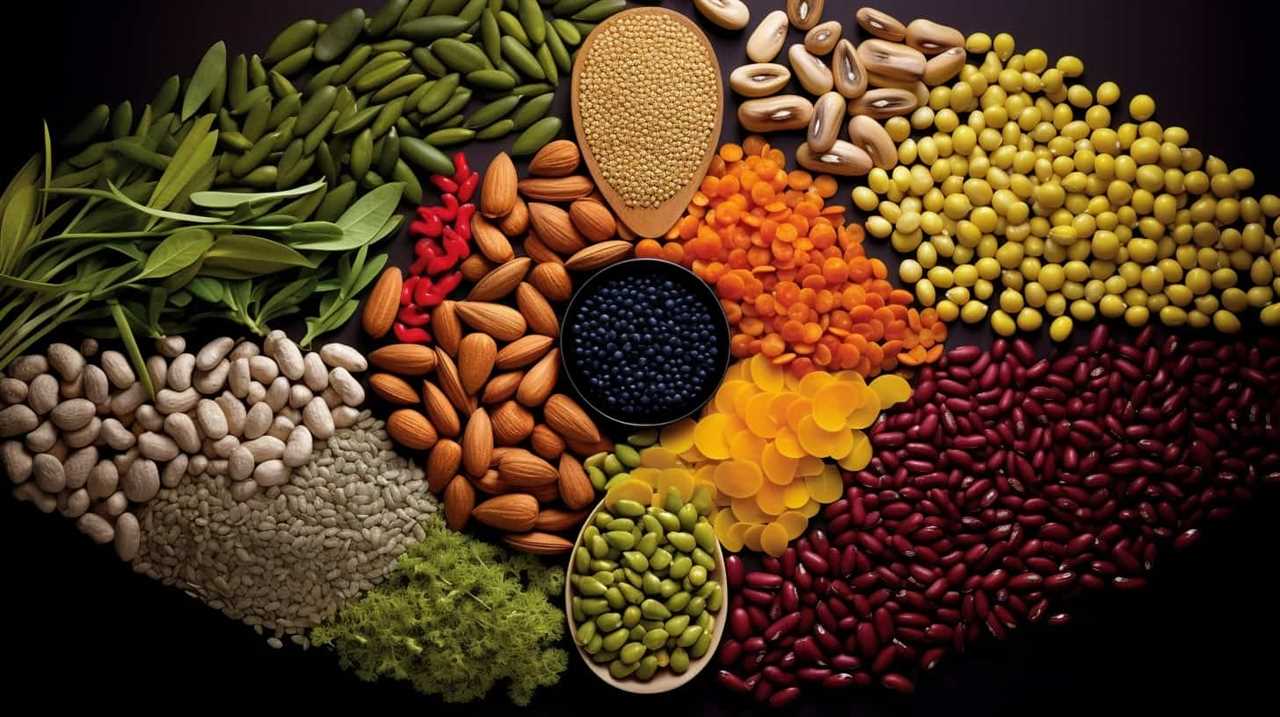
Are There Any Potential Side Effects or Risks Associated With Consuming Chia Seeds in Large Quantities?
In large quantities, chia seeds may cause digestive issues. However, when incorporated into a vegan diet, they provide essential nutrients like omega-3 fatty acids and fiber. It’s important to consume them in moderation for optimal health benefits.
Conclusion
In conclusion, chia seeds are a fantastic addition to a vegan diet, providing a wealth of essential nutrients. Packed with vitamins, minerals, and plant-based protein, they offer a well-rounded boost to your daily intake.
Additionally, chia seeds are an excellent source of omega-3 fatty acids and fiber, promoting heart health and aiding digestion.
By incorporating these tiny seeds into your meals and snacks, you can easily enhance the nutritional value of your vegan lifestyle.

Hi, I’m Sarah. I write for Turtle Tree Seeds, a news blog that loves food – all kinds of food. But especially bacon, chocolate, and veggies. We’re on a mission to show the world that you can enjoy all of those things, even kale and brussels sprouts. Because we believe that when it comes to food, there’s no such thing as guilty pleasures. Just pleasures.
I’m also a huge fan of puns (obviously).
Nutritional Value of Chia Seeds
Chia Seeds: A Nutrient Powerhouse for Vegans

Are you looking for a healthy addition to your vegan diet? Look no further, chia seeds are the answer! These tiny powerhouses are packed with protein, omega-3 fatty acids, fiber, antioxidants, and essential vitamins and minerals.
We’ve got the inside scoop on how these little seeds can elevate your plant-based meals to new heights. Get ready to nourish your body and serve up delicious and nutritious dishes with the help of chia seeds.
Let’s dive in!
Key Takeaways
- Chia seeds are a fantastic source of plant-based protein, making them an excellent choice for vegans looking to meet their protein requirements.
- Chia seeds are rich in omega-3 fatty acids, which have numerous health benefits, including reducing inflammation and supporting heart and brain health.
- Chia seeds are high in fiber, both soluble and insoluble, which can support digestive health, promote a feeling of fullness, and aid in weight management.
- Chia seeds are packed with antioxidants, such as flavonoids and phenolic acids, which can protect against chronic diseases and aging.
Protein Content of Chia Seeds
When it comes to the protein content of chia seeds, we can’t overlook their impressive nutritional profile. Chia seeds are a fantastic source of plant-based protein, making them an excellent choice for individuals looking to build muscle or lose weight. With approximately 5 grams of protein per ounce, chia seeds provide a substantial amount of this essential macronutrient.
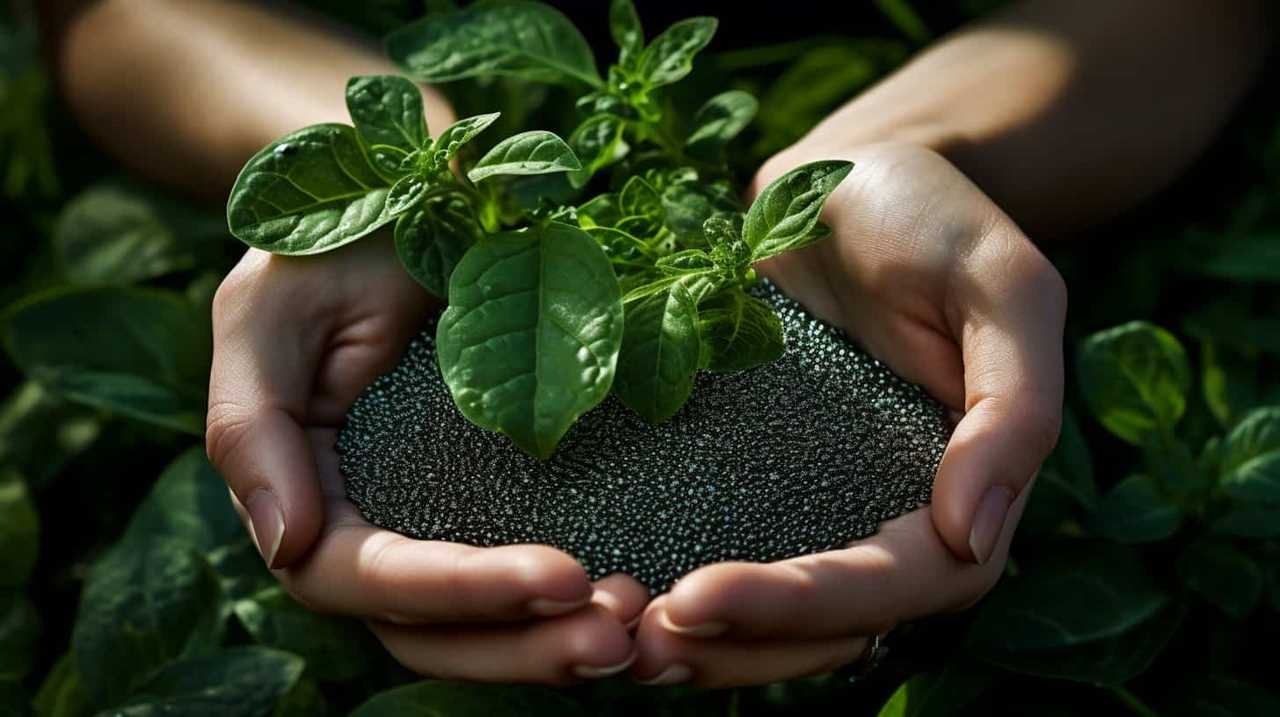
Protein is crucial for muscle repair and growth, and it also helps to increase satiety, making you feel fuller for longer. Incorporating chia seeds into your diet can support your fitness goals and aid in weight loss efforts.
Whether you sprinkle them on top of salads, blend them into smoothies, or use them as an egg substitute in baking, chia seeds are a versatile and nutrient-dense addition to any diet.
Omega-3 Fatty Acids in Chia Seeds
To fully understand the benefits of chia seeds, it is important to explore the abundance of omega-3 fatty acids they contain. Omega-3 fatty acids are essential fats that our bodies cannot produce on their own, so we must obtain them through our diet. Chia seeds are an excellent plant-based source of omega-3 fatty acids, making them a valuable addition to a vegan diet. These fatty acids have numerous health benefits, including reducing inflammation, supporting heart health, and improving brain function.
Incorporating chia seeds into a vegan diet is easy and versatile. You can sprinkle them on top of your morning oatmeal, blend them into smoothies, or use them as an egg substitute in baking.
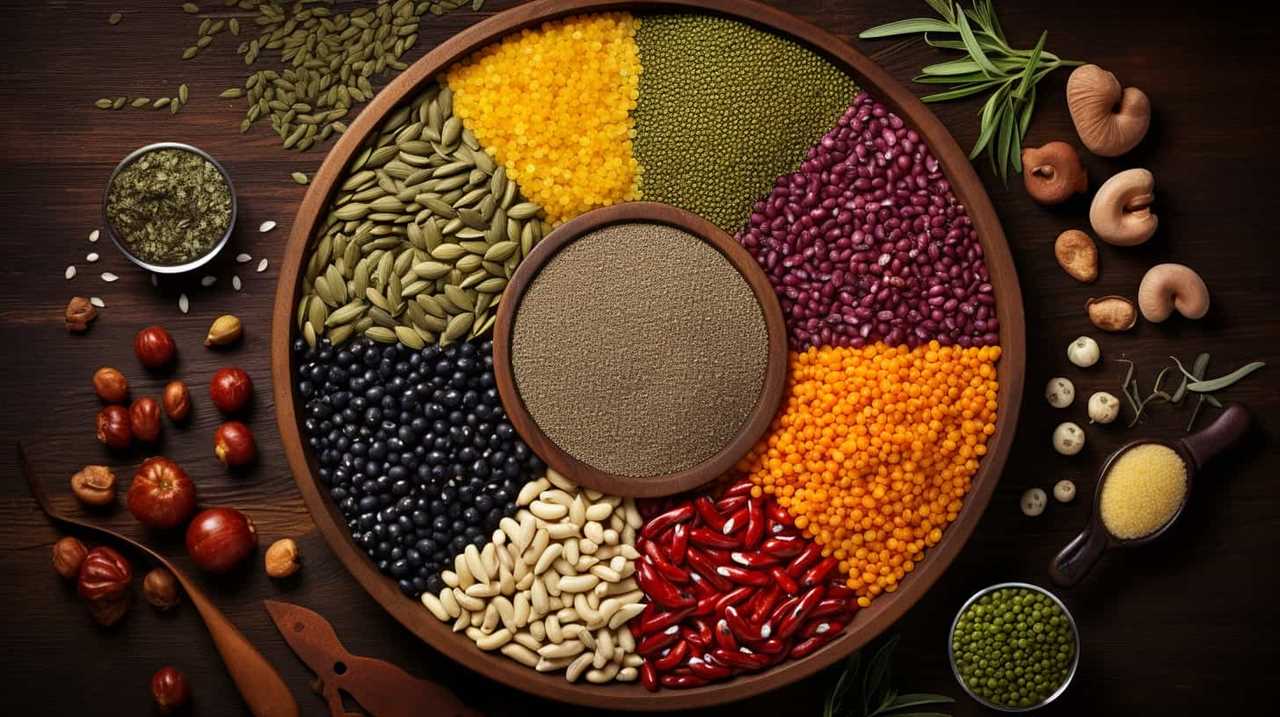
Here is a table that highlights the omega-3 fatty acid content of chia seeds compared to other plant-based sources:
| Food | Omega-3 Fatty Acid Content (per 1 ounce) |
|---|---|
| Chia Seeds | 4915 mg |
| Flaxseeds | 6388 mg |
| Walnuts | 2542 mg |
As you can see, chia seeds are a powerhouse when it comes to omega-3 fatty acids, providing a substantial amount in just a small serving. By incorporating chia seeds into your vegan diet, you can optimize your nutrition and reap the many health benefits they offer.
Fiber Content of Chia Seeds
The high fiber content of chia seeds contributes to their nutritional value for vegans. Fiber is an essential nutrient that aids in digestion, promotes bowel regularity, and helps regulate blood sugar levels. Chia seeds are an excellent source of both soluble and insoluble fiber.
Here are some nutritional benefits of chia seeds’ fiber content:

-
Soluble fiber: It forms a gel-like substance in the digestive system, which can help reduce cholesterol levels and promote a feeling of fullness, aiding in weight management.
-
Insoluble fiber: It adds bulk to the stool, preventing constipation and promoting a healthy digestive system.
Incorporating chia seeds into your diet is easy and versatile. Here are a few ways to enjoy the nutritional benefits of chia seeds:
- Add them to smoothies, yogurt, or oatmeal.
- Use them as an egg substitute in baking recipes.
- Sprinkle them on top of salads or roasted vegetables.
- Mix them into homemade granola or energy bars.
Antioxidant Properties of Chia Seeds
Chia seeds also possess impressive antioxidant properties, enhancing their overall nutritional value for vegans. Antioxidants are compounds that help protect our cells from damage caused by harmful molecules called free radicals. These free radicals can contribute to chronic diseases and aging.

Chia seeds are rich in antioxidants like flavonoids and phenolic acids, which have been shown to have numerous health benefits, such as reducing inflammation and protecting against heart disease and certain types of cancer.
Incorporating chia seeds into your diet is a simple way to boost your antioxidant intake. You can easily add them to your favorite recipes, such as smoothies, oatmeal, and baked goods. Chia seeds can also be used as an egg substitute in vegan baking, further enhancing their versatility.
Essential Vitamins and Minerals in Chia Seeds
Continuing the exploration of chia seeds as a nutrient powerhouse for vegans, we delve into the essential vitamins and minerals they offer. Chia seeds are packed with a wide range of vitamins and minerals that are important for maintaining overall health and well-being. Here are some of the key benefits:
- Vitamin and mineral benefits:
- Omega-3 fatty acids: Chia seeds are an excellent plant-based source of omega-3 fatty acids, which are essential for heart health and brain function.
- Calcium: Chia seeds are rich in calcium, which is important for maintaining strong bones and teeth.
- Iron: Chia seeds contain iron, a mineral that’s vital for the production of red blood cells and oxygen transport in the body.
- Magnesium: Chia seeds are a great source of magnesium, which is important for muscle function, nerve function, and energy production.
Including chia seeds in a vegan diet can provide these essential vitamins and minerals, helping to support overall health and meet nutritional needs.
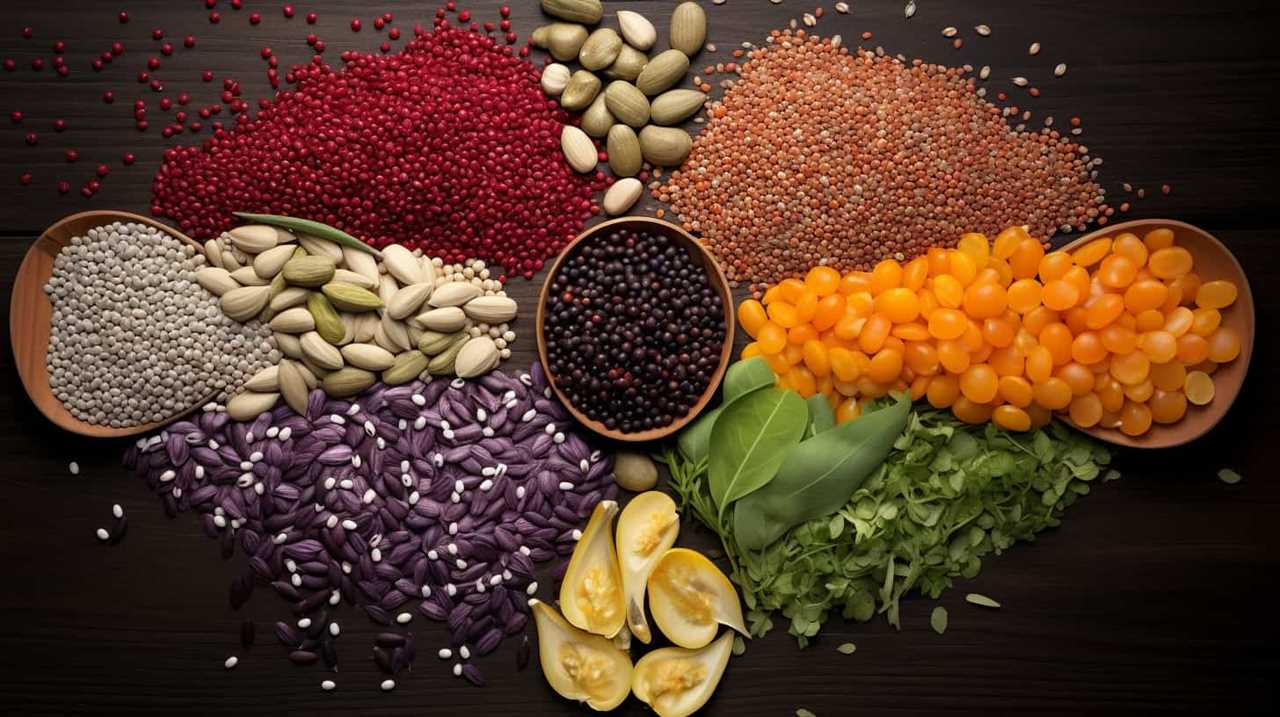
Frequently Asked Questions
Can Chia Seeds Help With Weight Loss?
Chia seeds can help with weight loss. They have appetite-controlling properties and can improve metabolic health. Incorporating chia seeds into your diet may be a practical and evidence-based approach to support your weight loss goals.
Are Chia Seeds Safe for Pregnant Women?
Chia seeds are a great addition to a pregnant woman’s diet. They provide essential nutrients for prenatal health and can help with pregnancy cravings. However, it’s important to consult with a healthcare professional for personalized advice.
How Should Chia Seeds Be Stored to Maintain Their Freshness?
To maintain the freshness of chia seeds, store them in an airtight container in a cool, dry place. This helps preserve their nutrients and prevent spoilage. Incorporating chia seed recipes into our diet can provide numerous benefits for vegans.
Can Chia Seeds Be Consumed by People With Nut Allergies?
Certainly! Chia seeds are a great option for people with nut allergies. They are packed with heart-healthy nutrients and can even be used as an egg substitute in recipes. So, enjoy chia seeds worry-free!
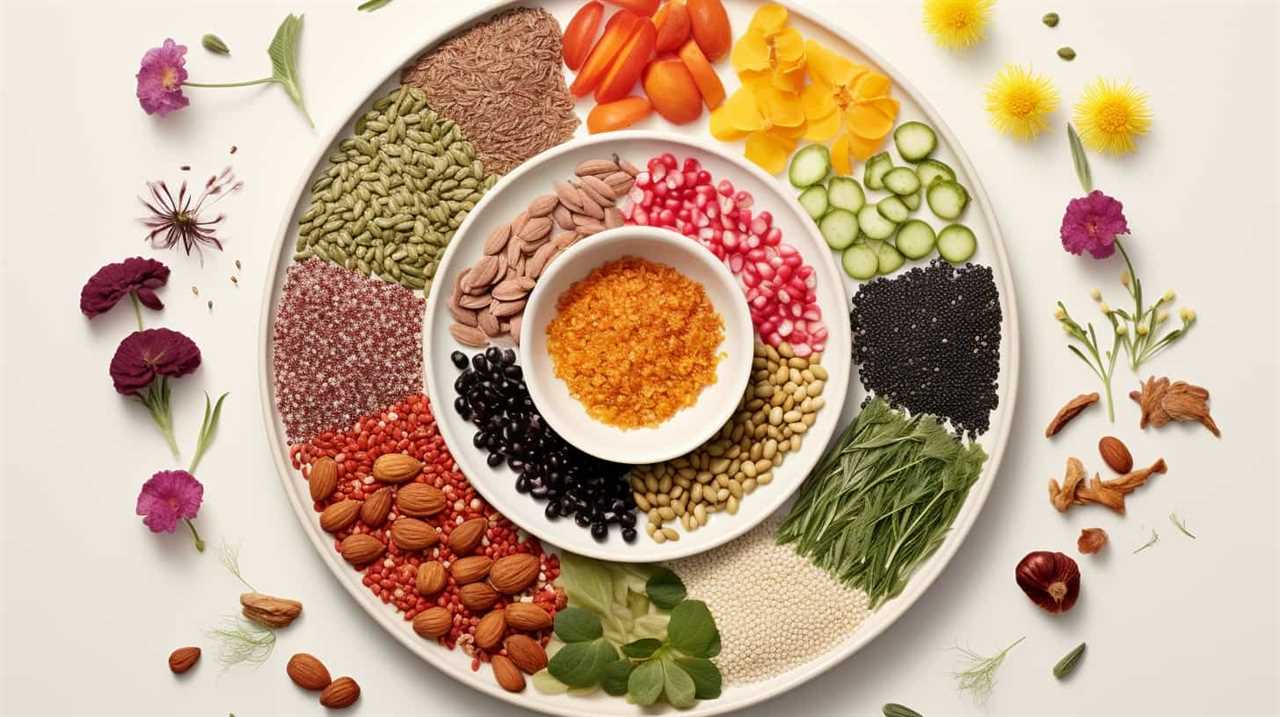
Are Chia Seeds Suitable for Individuals With Gluten Intolerance or Celiac Disease?
Chia seeds are suitable for individuals with gluten intolerance or celiac disease. They are naturally gluten-free and can be a nutritious addition to a gluten-free diet. Chia seeds offer numerous health benefits and can be enjoyed in various ways.
Conclusion
In conclusion, chia seeds are an absolute powerhouse of nutrients for vegans. With their high protein content, omega-3 fatty acids, fiber, antioxidants, and essential vitamins and minerals, they truly pack a punch when it comes to supporting a healthy and balanced plant-based diet.
Incorporating chia seeds into your daily meals can provide a wide range of health benefits, making them a practical and essential addition to any vegan’s pantry.
Hi, I’m Sarah. I write for Turtle Tree Seeds, a news blog that loves food – all kinds of food. But especially bacon, chocolate, and veggies. We’re on a mission to show the world that you can enjoy all of those things, even kale and brussels sprouts. Because we believe that when it comes to food, there’s no such thing as guilty pleasures. Just pleasures.
I’m also a huge fan of puns (obviously).
-

 Chia Seeds3 months ago
Chia Seeds3 months agoCan Cats Have Chia Seeds?
-

 Chia Seeds3 months ago
Chia Seeds3 months agoHow Do Chia Seeds Go Bad?
-

 Chia Seeds3 months ago
Chia Seeds3 months agoDo Chia Seeds Make You Poop?
-

 Health Risks and Allergies Related to Chia Seeds3 months ago
Health Risks and Allergies Related to Chia Seeds3 months agoWhy Do Chia Seeds Gel
-

 Chia Seeds3 months ago
Chia Seeds3 months agoHow to Use Chia Seeds For Weight Loss
-

 Chia Seeds and Digestive Health2 weeks ago
Chia Seeds and Digestive Health2 weeks agoWhy Are Chia Seeds Beneficial For Gut Health?
-

 Chia Seeds3 months ago
Chia Seeds3 months agoHealth Benefits of Chia Seeds For Dogs
-

 Chia Seeds in Gluten-Free Diets2 months ago
Chia Seeds in Gluten-Free Diets2 months agoYour Dependable Guide: Chia as a Gluten Substitute






